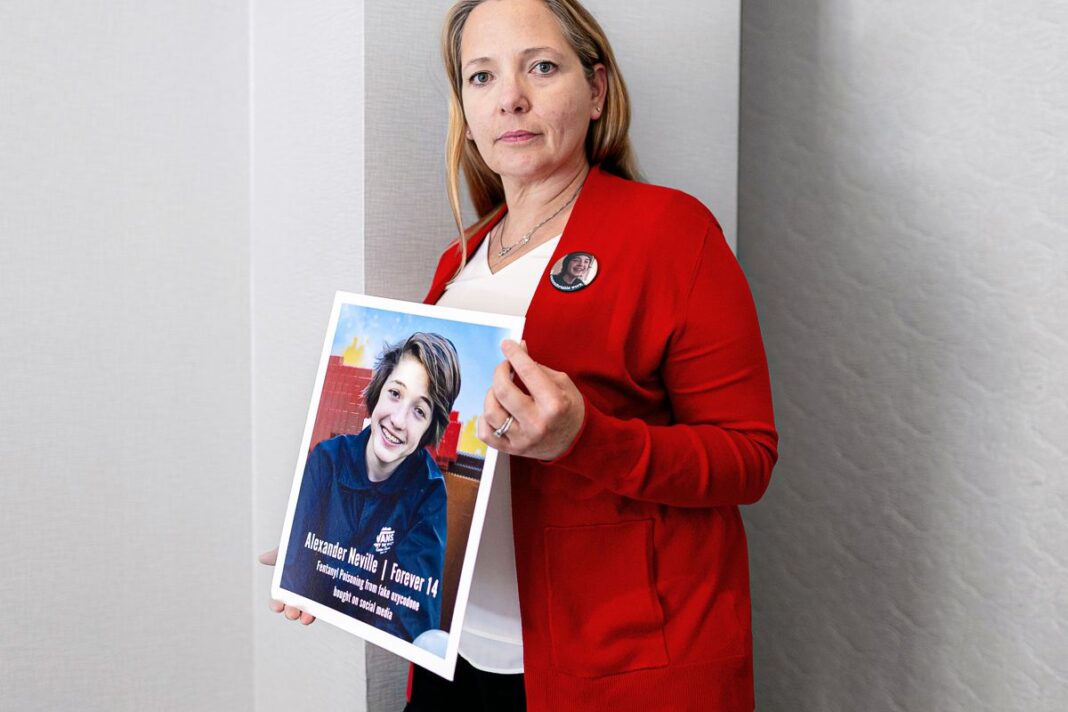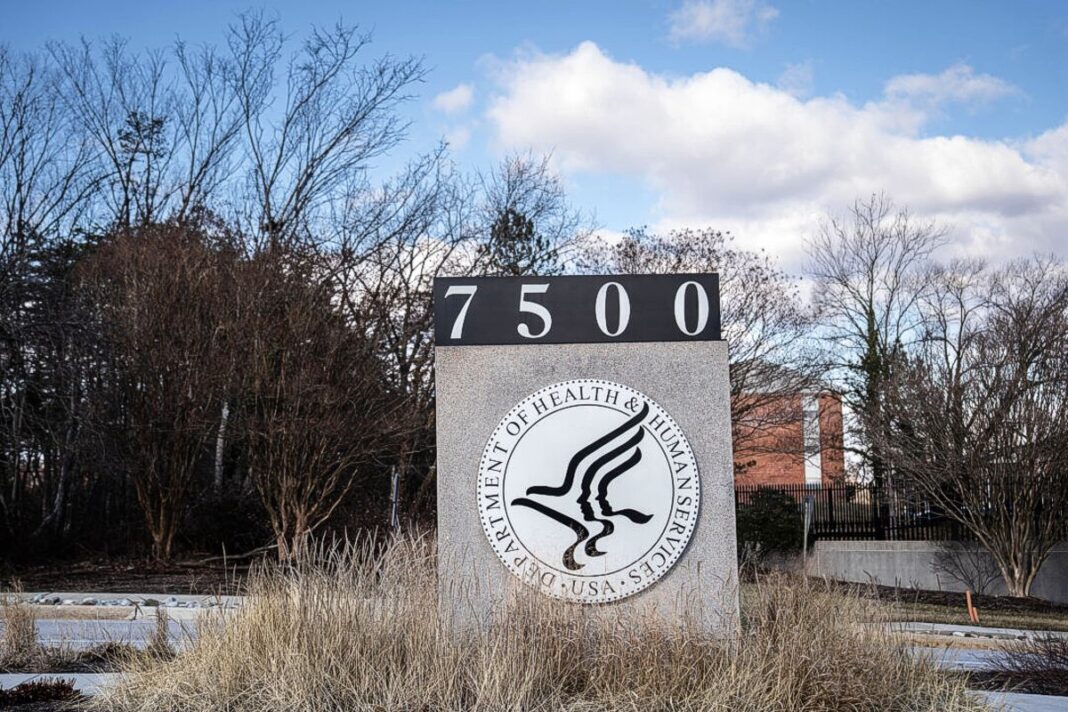A case against the social media company, brought by grieving families, aims to redefine Big Tech accountability.
WASHINGTON—Over and over, Amy Neville forces herself to tell people what happened to her 14-year-old son.
“I relive it. … I’m out there sharing the hardest thing that’s ever happened in my life,” she said. “It’s worth it, because I know we’re saving lives.”
Neville, 52, wiped away tears as she spoke those words during an interview with The Epoch Times on June 23. That day marked five years since her son, Alexander Neville, unknowingly ingested fentanyl and died—a tragedy that could easily befall any family, she said.
Through the nonprofit Alexander Neville Foundation, the grieving mother shares her personal pain with other parents. By her estimation, Amy Neville has given a couple hundred presentations in person and online; about 300,000 people have heard her warnings about the dangers that lurk on social media, leading to deaths such as Alex’s.
Neville also serves as the lead plaintiff in a groundbreaking court case that could affect the way Big Tech operates in the United States.
She believes that changes are needed to prevent many deaths among young people who, like Alex, flock to Snapchat and other online platforms.
Neville and her husband are among 63 fentanyl victims’ families suing Snapchat. They allege that the platform is a defective product and a public nuisance and that it should be held responsible for fentanyl overdose deaths, poisonings, and injuries.
Snap Inc., parent company of Snapchat, “vehemently denies” the allegations, a judge noted.
In the suit, the Social Media Victims Law Center represents dozens of families whose children “died of fentanyl poisoning from contaminated drugs purchased on Snapchat,” Matthew Bergman, the Seattle-based center’s founding attorney, told The Epoch Times.
Snap did not respond to a request for comment.
Life Changed ‘Like a Light Switch’
Five years ago, the Nevilles were living in Aliso Viejo, California, a tree-lined suburb of Irvine that ranks among the state’s safest communities.
Neville was running her own yoga studio; her husband, Aaron, was working as a website developer. They were both in their 40s, parenting their daughter Eden—a “brainiac” who loved school—and their son Alex, a “super smart” boy who hated homework but loved history, skateboarding, and gaming, according to Neville.
By Janice Hisle








